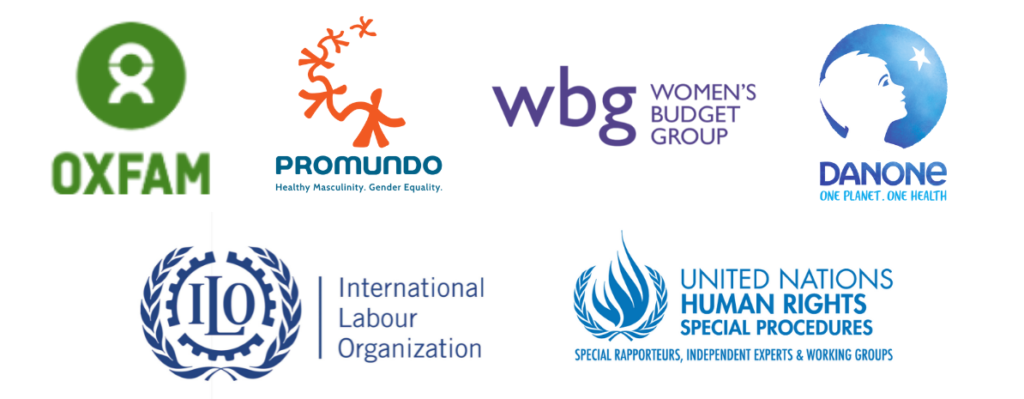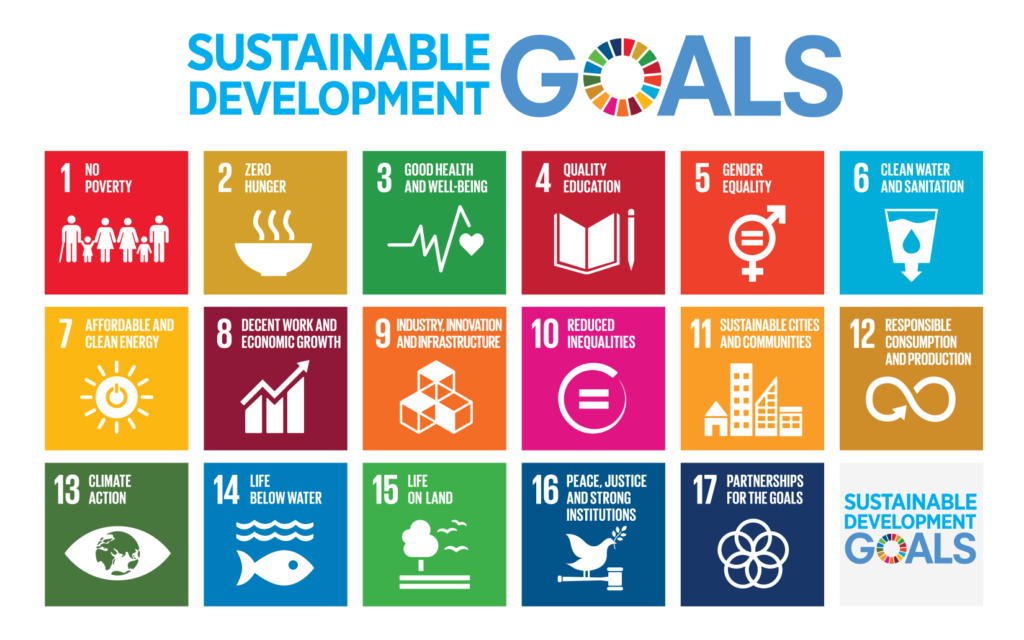Changing narratives about unpaid care work and the economy
03.07.21
UN New York / HLPF - Register now to join us virtually at this year’s High Level Political Forum side-event.



Changing narratives about unpaid care work and the economy
July 14 – 7:30-9:00 am New York / 1:30-3:00 pm Paris
→ Register here
Programme & Speakers
Introductions
- Anne-Claire de Liedekerke, President, Make Mothers Matter @acdelied
- Olivier De Schutter, UN Special Rapporteur on extreme poverty and human rights @srpoverty @DeSchutterO
Moderator:
- Susan Himmelweit, Feminist economist, Emeritus professor of economics for the Open University in the UK, member of the UK Women’s Budget Group Commission for a Gender Equal Economy @suehimmmelweit
Part 1 – Changing the narrative on unpaid family care work in families and workplaces
- Gary Barker, Founder and CEO, Promundo Global – on the importance of sharing the care within families, not only for redistribution, but also as a way to changing the view that men have on the value of this work, and the potential multiplier effect it can have on the wellbeing of every family member, gender equality, and a more caring society @Promundo_US
- Sonia Malaspina, Director, Human Resources South Europe, Danone Specialized Nutrition – to show how supporting workers with caregiving responsibilities, especially mothers, can, in the long term, be a win-win strategy for private companies and employees alike, and contribute to shifting perspectives on unpaid care work as being interrelated with paid work, as it develops skills which are also of value for a company @malaspinasonia
Part 2 – Changing the narrative on the economy, to empower mothers and children
- Anam Parvez Butt, Gender Justice Research Lead and Policy Advisor, Oxfam Great Britain – on “Time to care” & reframing care as a ‘social good” to bring about human economies caring for people @AnamParvezButt
- Shahra Razavi, Director, ILO Social Protection Department – on changing the narrative on social protection so that it is considered an investment, not an expense to be minimized, and designed to support unpaid caregiving @ILO @RazaviShahra
There will be simultaneous interpretation in French.
Background information
The pandemic has shown the critical importance of Care. It also exposed the challenges that women, particularly mothers, face in juggling paid work and unpaid Care responsibilities.
Feminist economists have long denounced the inequitable distribution of unpaid care work as a root cause of gender inequalities. At the heart of the problem is our current economic system, which considers unpaid care work – and nature – as endless and free commodities.
The Covid-19 crisis provides a unique opportunity to repurpose our economy, so that it serves the wellbeing of people and our planet.
Bringing about such systemic change begins by changing narratives and perspectives on both unpaid care work and the economy.
Our objectives:
- Raise awareness on the multiple benefits of taking a more holistic approach to “work”, i.e. considering both paid and unpaid care work, by recognizing that unpaid care is indispensable work that sustains the economy and develops valuable skills
- Make the case for a paradigm shift in our economic narrative around Care, so that in budgets, spending in care, education, health and family support, are considered as investments – not as expenses
- Showcase examples of good policies/practices that can change perspectives and views on unpaid care work and our economy
- Call on governments and international organisations to seize the opportunity to transform our economy and move from the short-term and exploitative “GDP growth” narrative to the wellbeing economy narrative
→ Register here
About the High Level Political Forum
The 2021 UN High Level Political Forum (HLPF – 6-15 July), will review progress of member states’ implementation of the 2030 development agenda, with a particular focus on SDG 1, 2, 3, 8, 10, 12, 13, 16 and 17. Our event relates to this year’s HLPF main theme: ‘Sustainable and resilient recovery from the COVID-19 pandemic that promotes the economic, social and environmental dimensions of sustainable development: building an inclusive and effective path for the achievement of the 2030 Agenda in the context of the decade of action and delivery for sustainable development‘.
See also
- our HLPF 2021 written statement ‘Revisiting SDG 8 with a care lens’
- our 2020 HLPF side-event on ‘Care and Education – Cornerstones of just and sustainable economies’
Useful Resources
From the Special Rapporteur on extreme poverty and human rights
- The SR’s call to set up a Global Fund for Social Protection at the 47th session of the Human Rights Council
From the Women’s Budget Group UK
- Women’s Budget Group’s Commission on a Gender Equal Economy final report “Creating a caring Economy: a Call to Action”
- The spiral of inequality video and infographics which shows why the unequal division of unpaid care is at the heart of gender inequality.
- A blog post and a Podcast on the unequal division of unpaid care due to the pandemic in the UK and in a podcast here
From Promundo
- 2021 State of the World’s Fathers Report on Structural solutions to achieve equality in care work
From Danone & its partner Lifeed
- Sonia Malaspina’s TEDx talk on How to implement gender equality in the workplace
- Lifeed – Life feeds education
From Oxfam
- 2020 Report Time to Care
- 2021 Report Public good or private wealth – Universal health, education and other public services reduce the gap between rich and poor, and between women and men. Fairer taxation of the wealthiest can help pay for them
From the ILO & UN Women
- ILO 2018 Report Care work and care jobs for the future of work
- UN Women’s Progress of the world’s women 2015–2016 report Transforming Economies, Realizing Rights

The New EU Gender Equality Roadmap : A Call for Inclusion of Mothers
04.03.25
The European Commission’s initiative on a new Gender Equality Roadmap post-2025, marks a significant step forward in addressing gender disparities across the European Union. Make Mothers Matter (MMM
Breaking the Cycle: Gender Equality as a Path to Better Mental Health
18.03.25
The Council of the European Union has taken a decisive step in recognising the vital connection between gender equality and mental health.
Europe Must Listen to Mothers: Our landmark report heads to the European Parliament
28.08.25
On 22 September 2025, the voices of mothers will take centre stage in Brussels. For the first time, Make Mothers Matter (MMM) will present its State of Motherhood in Europe








